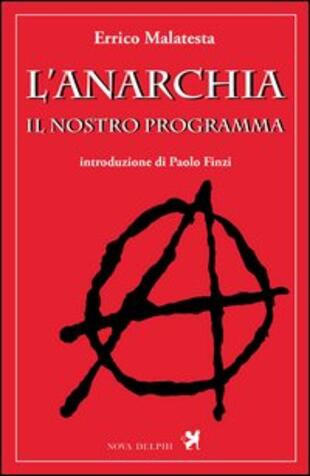

Sinossi
"Anarchia è parola che viene dal greco, e significa propriamente senza governo: stato di un popolo che si regge senza autorità costituite, senza governo." Con queste parole si apre "L'anarchia", accompagnato in questa sede da un vero e proprio programma d'azione del movimento, "Il nostro programma". Due documenti storici che delineano con chiarezza ed efficacia i tratti salienti del pensiero anarchico ma anche due testi che conservano intatta, oggi più che mai, la loro carica eversiva e rivoluzionaria, contribuendo nello stesso momento a sfatare alcuni luoghi comuni tradizionalmente associati all'anarchismo. Completano il volume un ricco apparato iconografico e un profilo biografico dell'autore.
- ISBN: 8897376150
- Casa Editrice: Nova Delphi Libri
- Pagine: 112
- Data di uscita: 29-04-2014
Recensioni
Anarchy is a slim book, just 54 pages altogether, of which the first 15 are the translator’s introduction. Malatesta’s style, though, is dense - arguments come thick and fast, but with extreme clarity. Of course, in such a short book, not everything can be examined in great depth. But as a brief, cl Leggi tutto
Κάποτε μάζευα σωρηδόν βιβλία του Ελεύθερου Τύπου. Τώρα, απλά στέκομαι μπροστά τους και αναρωτιέμαι: Ποιος ήταν, αλήθεια, εκείνος ο αναγνώστης τους; Πού να βρίσκεται τώρα; Απάντηση δεν έχω. Leggi tutto
It was pretty good, but nothing special. Kinda like a poor man's Bakunin (or Kropotkin in some sections). It suffers from the same problem that most lefty anarchist literature suffers from. Namely a vagueness about definitions of things like "private property," upon which the coherence of the entire Leggi tutto
Utopico e ripetitivo
I chose to give this book a 2 star for its great introduction into what government is, what Anarchy isn't, and for a comprehensive explanation of human nature. On the issue of Anarchy itself, or what should be called Socialist Anarchy, Malatesta's ideal is a revolution to take all private property a Leggi tutto
muy buen libro para las primeras aproximaciones a la teoría anarquista; sirve mucho para cuestionar las doctrinas de los filósofos contractualistas entre el s. XVII y s. XVIII (mención honorífica a los conceptos de la supuesta naturaleza humana que se nos ha impuesto creer, véase a Hobbes, John Lock Leggi tutto
Citazioni
Al momento non ci sono citazioni, inserisci tu la prima!






















